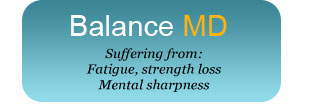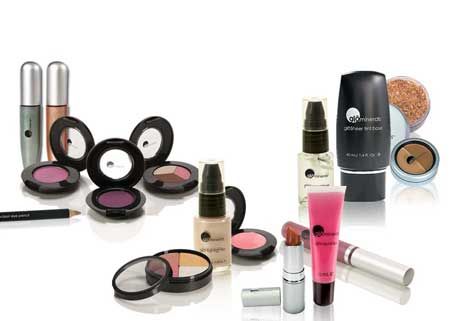December Newsletter
 HEALTH with Paul L. Hester, M.D.
HEALTH with Paul L. Hester, M.D.
Beating Hormonal Weight Gain in Midlife
You're not imagining it: Your hormones are making you
hungrier. Here, the facts on hormonal weight gain and how to prevent it.
Hormonal Weight Gain
Many of my midlife patients complain about weight gain even though they
feel as if they aren't eating any differently. They haven't changed, but their
brains have.
As you enter perimenopause, your brain becomes less
sensitive to estrogen. This, of course, can trigger a cascade of familiar
symptoms: hot flashes, fatigue, depression, changing libido. But in many women,
it can also cause raging hunger. Estrogen affects your brain's levels of
serotonin, dopamine, norepinephrine, and acetylcholine -- neurotransmitters
that control eating, mood, and memory -- so changes in estrogen wreak havoc on
your appetite control.
Your appetite is controlled by your brain's energy
thermostat, located in the hypothalamus. There, hormones and neurotransmitters
signal your appetite to turn on or off. So the easiest way to control your
hunger -- whether you want to lose weight or just maintain it -- is to work
with your hormonal currents rather than to fight them.
Your Hormonal Hunger Chemistry
Hormones, neurotransmitters, and other chemical signals
circulating among your brain, your fat cells, and your stomach control your
urge to eat (and to stop eating). Here, a look at the major players.
LEPTIN is a protein produced by fat cells that tells
your brain that you are full.
GHRELIN is a hormone that's secreted in your stomach.
It signals the cells in your brain's appetite center that you are famished.
DOPAMINE, a neurotransmitter, plays a major role in
motivation, addiction, and reward; it may prompt you to keep eating even though
you're not hungry anymore.
CORTISOL, a stress hormone, is produced by the
adrenal glands and waxes and wanes throughout the day. When it's low, it may
stimulate hunger.
Three Ways to Work with Your Hormones -- Not Against Them
- Start
a diet on the day you start menstruating.
During the first two weeks of your cycle, your ovaries are not producing
progesterone, which means your brain is not signaling you to eat more food
to prepare for a possible pregnancy. These are the perfect two weeks to
eat less without feeling deprived. - During
the two weeks before ovulation (the two weeks after your period), reduce
or eliminate sugar and other simple carbs (white bread, pasta, etc.).
During the second half of your cycle, increases in your progesterone level
stimulate the brain to crave sugars and carbs. So the best time to train
your taste buds to say no is before the progesterone spikes. - Exercise
more during the second two weeks of your menstrual cycle.
This will help derail your desire for carbohydrates during the
progesterone surge. Keeping your carb intake in check during these 26
weeks of the year can make a significant difference when it comes to
weight loss. - Don't
Cut Calories; Redistribute Them To curb your appetite and lift your
mood, you want to keep your ghrelin level low and your leptin level high.
Eating five small high-protein meals a day will accomplish that. Be sure
to eat them at about the same time each day.
- By
having mini meals every few hours, you also give your body a chance to
switch over to the "reserve fat" tank -- the fuel stored in fat
cells -- without feeling as if you're starving. When you feel just a bit
hungry between meals, your body and brain will get fuel from your reserve
tank of fat. And because you have to wait only another hour or less before
you eat again, you can better resist being seduced by ghrelin's siren
song.
- Mix
Your Meals Don't cut complex carbohydrates from your diet. Doing so
can actually make you cranky, sad, or even depressed. A carb-free diet
also makes you prone to hunger. A better strategy is to pair complex
carbohydrates with high-protein foods. Complex carbs (such as high-fiber
vegetables) take more time and energy for your body to digest, so they
don't prompt your pancreas to pour out insulin, setting off the vicious
cycle that makes your brain crave sugar again.
- Don't
Wait to Have Dessert That is, eat dessert right after a meal. If
you've eaten a dinner of carbs and protein with a little fat, you've slowed
down your digestion. Protein and fat in your system dampens the insulin
impact of a sugary dessert. Dopamine, the reward neurotransmitter, will
egg you on to eat more. Ask yourself if you're enjoying this bite as much
as the first; when you're not, stop.
- Fill
Up on Endorphins Your estrogen output may be sputtering, but you're
still capable of producing plenty of endorphins. When your brain is
pumping these out, you're less likely to fixate on food. Good endorphin
releasers: exercise, laughter, and orgasms. By Louann Brizendine, MD
 BEAUTY with Chasity Hester, PA-C
BEAUTY with Chasity Hester, PA-C
You Glo Girl!
Be Medispa is thrilled to announce the arrival of GLO MINERALS, a skin nurturing makeup with a higher purpose. GLO MINERALS is a makeup system uniquely formulated for skin care professionals and is available now at Be Medispa. These advanced formulations combine pharmaceutical-grade ingredients, natural high-pigment minerals and the power of antioxidants. The result is clinically advanced mineral makeup that covers and helps correct and protect. GLO formulations deliver unsurpassed coverage, broad spectrum UV protection and assist in combating free radical damage. Using only the finest ingredients, micronized minerals are triple milled, ensuring every application provides even, continuous coverage that lasts. There are no perfumes or chemical dyes used in GLO formulations, making them suitable for even the most sensitive skin types. The products provide broad Spectrum UVA and UVB sun protection using the effective properties of micronized titanium dioxide and zinc oxide. Colors range from the sultry sublime to the hottest hues, rich in pigment and ready to wear. Best of all, the anti-inflamatory ingredients, including green tea extract, zinc, and vitamin C actually IMPROVE the appearance and condition of of acne and rosacea-prone skin.
Call us now to schedule your personal make up consultation.
Hormone Fear from Misleading Study Conclusions
I am pleased to introduce Alan Altman, MD, clinical professor at Harvard Medical
School. Hehas assembled the real facts on the
Women’s Health Initiative (WHI), a landmark women’s health study that when
reported by the government had wide (and detrimental) impact – creating mass
fear for women about hormones, and forever changing practitioners prescribing
of hormones. Even though this study has had far reaching impact, less
than one-third of women are even aware of the WHI, a recent study by Stanford
researchers have found, and many doctors still are unaware of the real
findings that have emerged over time and through critical analysis.
So, here are the facts on the WHI from an expert who
understood from the beginning what the study showed and did not
show.
What the WHI (erroneously) “concluded."
- Hormones are BAD for women
- Hormones increased breast cancer risk
- Hormones increased heart attack risk
- Hormones caused dementia
- Hormones should not be used for prevention of heart disease
- Only use hormones for symptom relief at the lowest dose and the shortest time
(WIB note: currently there is no research on this recommendation)
What the WHI CAUSED after their “conclusion”
- Primary Care Providers took their patients off all
hormones
- Women stopped taking their hormones
- Media driven hysteria and panic among hormone users
- FDA change language from HRT to HT (hormone therapy)
WHI – Here are the Facts – Straight Talk from Alan
Altman, MD
- The WHI did not study all “hormones." In fact,
the ONLY hormones studied were Prempro© and Premarin© (non-human identical
hormones and only pill form)
- The WHI Study was not really about “all women”…average age of the women
studied were 12 years after menopause…averaged 64 years old at outset of
study
- What WHI actually did show was that a 72-year old woman should not be started
on oral Prempro© to protect her heart.
- Also, there appears to be a risk of breast cancer concerned with use of the potent
synthetic progestin (or Medroxyprogesterone Acetate - MPA) that was used in
the WHI
- Oral estrogens increase the risk of blood clots and
of strokes related to blood clots. (We’ve known this for 30+ years, however we
see no increase in clots or strokes on non-oral estrogen.)
- Any small increase in dementia was seen only in women ages 75 to 80!
(Numerous studies of women starting HT at the appropriate age close to their
final menstrual period have demonstrated a 50% to 65% decrease in the risk of
Alzheimer’s disease.)
- Women saw no quality of life benefits from taking these hormones, because 88%
of the women in the study had no menopausal symptoms to begin with.
- There was a slight increase in breast cancer risk when on
Prempro© (estrogen and progestin) and slight decrease on Premarin© (estrogen
therapy).
Key Facts:
- Non-oral estrogen (specifically estradiol via transdermal
patch, gel or transvaginal ring) AND natural micronized progesterone taken
orally is presently safer, healthier and more “natural” for use in hormone
therapy.
- There is a serious lack of consensus in the data looking
at estrogen use and breast cancer risk.
- Testosterone can be useful in the appropriate patients
post hysterectomy.
Alan Altman, MD is Assistant Clinical Professor of OB/GYN and
Reproductive Biology at Harvard
Medical School.
He is a practicing gynecologist, specializing in peri and post-menopausal
health, hormone replacement therapy and female sexuality.

















 HEALTH with Paul L. Hester, M.D.
HEALTH with Paul L. Hester, M.D.
 BALANCE with Paul L. Hester, M.D.
BALANCE with Paul L. Hester, M.D.


